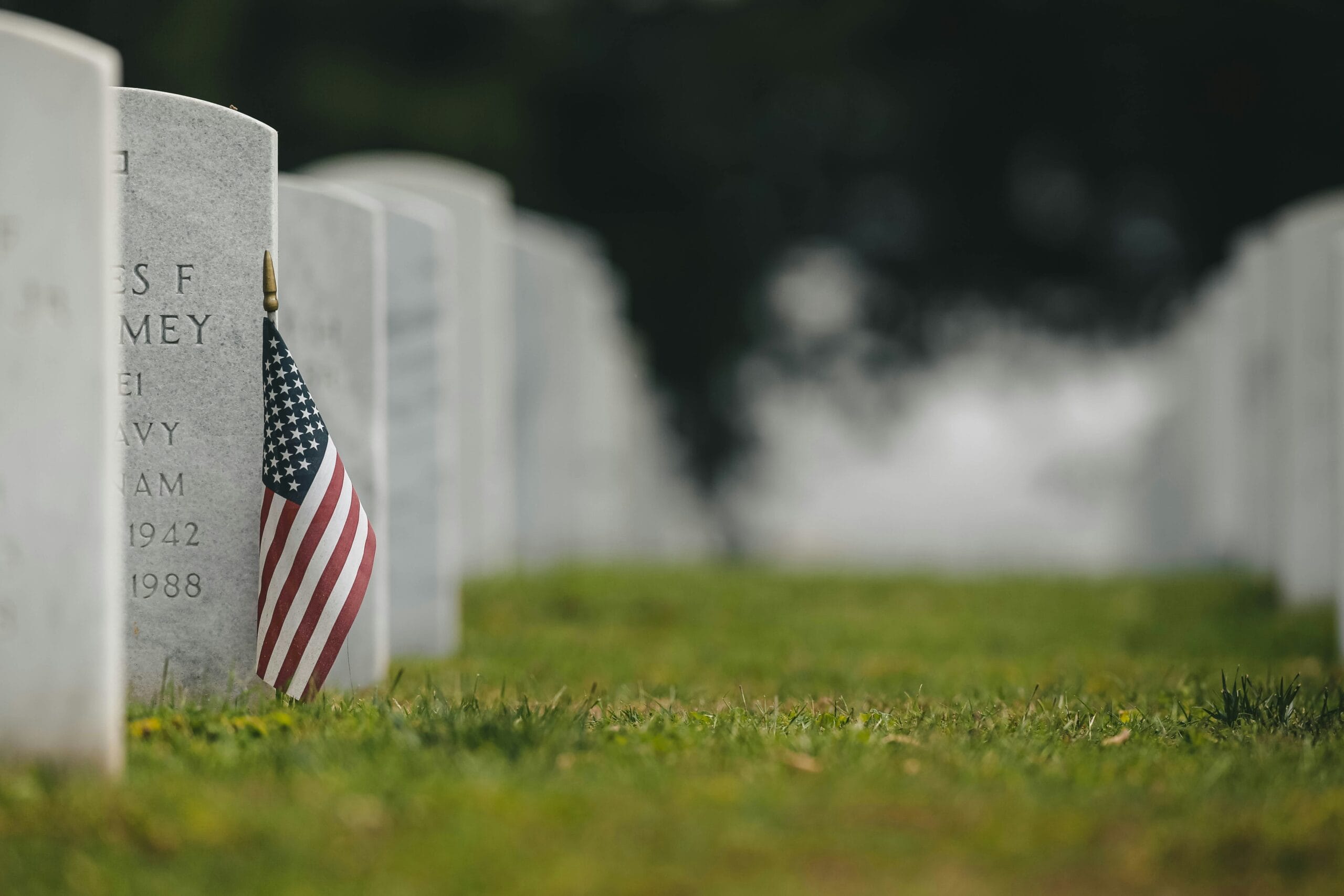Episode Transcript
[00:00:00] Speaker A: Foreign.
[00:00:05] Speaker B: Defiance, everyone.
I'm Bill, your resident skeptic with a microphone, always ready to dissect the power structures at play in our society.
And on this Memorial Day, that means looking beyond the usual flutter of flags and fanfare.
[00:00:24] Speaker C: And I'm Nils, your friendly neighborhood talking head, here to remind us that history isn't just written by the victors, but by everyone who lived it.
Today, we're amplifying voices that have often been relegated to the footnotes of military history.
[00:00:38] Speaker A: And hey, y', all, Bobby socks in the house.
You know I'm all about challenging status quo. And let's be real. The image of the typical American service member has been pretty sis head white male for far too long. It's time for a serious upgrade.
[00:00:56] Speaker B: Absolutely, Bobby.
For many, Memorial Day conjures up images that are.
Well, let's just say they don't always reflect the beautiful and complex reality of who has actually served this nation.
We're talking about a military built on the courage and sacrifice of people from every corner of American life.
[00:01:21] Speaker C: Think about it. Black soldiers fighting for a nation that denied them basic rights, women breaking through countless barriers to contribute in vital ways.
LGBTQ individuals serving in silence and fear, and immigrants risking their lives for a country that wasn't even their birthplace, just their idea of a dream.
These aren't just footnotes. These are integral parts of our military history.
[00:01:48] Speaker B: And they are integral parts that are being systematically eradicated from every corner of print, audio, and video media where they've been archived, untouched and unedited, for generations.
[00:02:01] Speaker A: So buckle up, buttercups. Today, we're not just paying lip service to all who served. We're diving deep into the often untold stories, the struggles, the triumphs, and the profound impact that service members from marginalized communities have had on shaping our country.
It's time to truly honor the diverse threads of honor that make up the fabric of our military.
[00:02:26] Speaker B: As always, you can follow us, sign up, and find out more about the show over@critical defiance.com don't forget to subscribe to us on Spotify or in your favorite podcast app. Hit the like button over and over again everywhere you see one, and tell your friends to join us. If you'd like to donate and help boost our efforts, you can head over to buymeacoffee.com critical defiance or pledge your support on our website.
Every little bit helps on our journey to bring you great content.
So, in this week's news, members of the Trump administration have been speaking about possibly suspending a foundational principle of the Constitution, habeas corpus, which from our founding has protected people, not just citizens, any person in the United States from unlawful detention.
Now, this is not terrifically surprising coming from a man who has suggested more than once that it would be very convenient for him if he could suspend the entire Constitution and who can't even seem to remember if the oath of office he took barely four months ago, calls upon him to, quote, preserve, protect, and defend that document.
I suppose if you can't suspend it, then maybe chipping away at it one little piece at a time is the next best thing.
I hear that it's worked for other men in other countries.
[00:04:10] Speaker C: So what's funny about this is Kristi Noem was actually questioned on Capitol Hill about what the meaning of habeas corpus was, and this woman's response was just, it's stupid for the ages. She said it was the president's right to deport people granted him by the Constitution.
[00:04:28] Speaker A: Incorrect.
[00:04:30] Speaker B: Pretty much.
[00:04:31] Speaker C: The. You were the secretary of the Department of what now Holy.
[00:04:36] Speaker B: I pretty much survived on the hope that the people he was surrounding himself with would be smarter than him, which is not a high bar, mind you.
He has found his people and he has wrapped himself up in them.
We are in trouble, friends.
[00:04:58] Speaker C: We are very much in trouble. Did you hear about Hagseth and his weekly Christian prayer meeting at the Pentagon?
[00:05:04] Speaker B: Yes, I did hear something of that.
[00:05:07] Speaker A: Separation of church and state. Who. It's just stupid egging on stupid.
[00:05:12] Speaker B: They're actually trying to one up one another.
[00:05:15] Speaker A: Yeah, and talk about cult behavior. I mean, the MAGA cult that we. You know, they're called that. But now with the people in the administration, it's just like they all decide to believe something that's absolutely false. And because so many of them have decide to be willfully ignorant, they just won't accept anything different.
[00:05:37] Speaker C: It is scary because ABS is basically one of the primary foundations of America. It literally was one of the driving reasons we created this country. People in this country were being arrested, detained, and all sorts of other things back in the day based on, you know, what the king said, what the local magistrate said, not things like evidence. So habeas corpus, you know, for those of you who want it in English, is show me the body of proof.
Show me that you've actually got evidence in this case that someone has done X, Y, or Z that they're charged with. It's very simple. It's the foundation of innocent until proven guilty. Because it is the. The literal question of, you know, show me the proof.
[00:06:14] Speaker A: I've been checking the map on the ACLU site that maps out the anti LGBTQ bills that are being proposed in states throughout the country. We've spoken about this map on earlier episodes of the show.
Unfortunately it's getting a bit worse. We are now up to 575 anti LGBTQ bills throughout the country in 49 of 50 states.
Now don't let this freeze you and make you think that all hope is gone, because it's not.
If you look at the map on the ACLU site, they will also let you know which bills have been defeated. And luckily there are a good number of them that are being defeated. There's still too many that are being passed. But the fact that some of these bills in states like Arkansas or Alabama have actually been shot down, it's a sign that somebody's on our side, hopefully.
[00:07:20] Speaker B: And somebody's in touch with reality.
[00:07:25] Speaker A: Being queer myself, it is scary to see that and know that it's happening. But we can't let that be something that stops us, because that's what they want. They want to scare us.
[00:07:40] Speaker C: If anything, it's got to be the opposite.
[00:07:41] Speaker A: So don't let them scare you into submission.
Let them anger you into action.
[00:07:49] Speaker D: Alright, alright, Defiant Ones Skeeter here, dropping in to give you the lowdown on how to stay connected with your favorite purveyors of truth and witty banter. That's us, by the way, over at Critical Defiance. You've been showing some serious love lately and we are absolutely here for it.
So if you want to make it official and join the ranks of the truly defiant, head on over to critical defiance.com that's where you can dive deeper into what we're all about. And because we know you're all about that on the go life, you can snag our podcast on Spotify, Apple Podcasts, or wherever you get your audio fix. Subscribe and you'll never miss a moment of our insightful, well, you know, rambling. But wait, there's more. We actually want to hear what's bouncing around in that brilliant brain of yours. So drop a comment on our episode pages@critical defiance.com and let us know what you think. We're also hanging out on Blue Sky, Instagram and Facebook, and we'd love for you to join the party there too. You can find all the links conveniently located on our homepage. Consider it your treasure map to enlightenment and maybe a few memes. Seriously though, if you dig what we're doing, spread the word like a juicy piece of gossip. At a family reunion.
Tell your friends, tell your enemies. Maybe they'll finally see the light.
Tell your barista, tell anyone who will listen. And hey, if you're feeling particularly generous and want to toss a little something our way to keep the truth telling train chugging along, you can head over to buymecoffee.com critical defiance every little bit helps us keep the mics hot and the critical thinking flowing. Thanks for being awesome defiant ones. Now go forth and challenge the status quo.
[00:09:32] Speaker C: Welcome back to Critical Defiance, the podcast where we don't just read the history books, we flip through the pages they conveniently skipped over.
Today for our DEI Memorial Day extravaganza, we're diving deep into the diverse tapestry of American service.
Because Memorial Day isn't just about remembering the fallen. It's about celebrating the full spectrum of patriotism that often gets a little whitewashed.
[00:09:59] Speaker A: That's right, Nils. And frankly, some of these stories are so compelling it's a wonder they're not blockbuster movies already.
We're talking about the brave men and women who served, fought and sacrificed, often in the face of incredible adversity, from within our own borders, let alone from external enemies.
[00:10:21] Speaker B: That's right, and not only from within our own borders, but from within their own units and squadrons and platoons. It's a crucial distinction.
We often get this monolithic image of the American soldier, and while that image is powerful, it's also incomplete.
Today we're going to fill in some of those blanks and ensure that the stories of all who served are heard.
[00:10:52] Speaker A: When we talk about untold histories. The contributions of African American soldiers throughout American history are, frankly, a masterclass in resilience. We're talking about folks who fought for a country that didn't always fight for them.
[00:11:08] Speaker B: Imagine signing up to defend a nation that actively denied you basic rights.
It's an incredible testament to their commitment to the ideals of America, even when America fell woefully short of those ideals.
[00:11:27] Speaker C: And it started early during the Revolutionary war, an estimated 5, 000 African American soldiers served in the Continental army and state militias.
Think about that for a second.
They're fighting for independence while many of them are still enslaved or living under oppressive conditions.
They're literally fighting for freedom that isn't their own. Yet.
[00:11:50] Speaker A: Talk about a mic drop in the face of hypocrisy. And it continued through the Civil War.
Nearly 180,000 black men served in the Union army, making up about 10% of the total Union forces.
Many of them were formerly enslaved, fighting for their own liberation and the liberation of their people.
[00:12:10] Speaker B: And they served with incredible distinction.
The legendary Buffalo soldiers were six all black regiments of the US Army. Assembled in 1866.
They served with remarkable valor in the Indian wars, earning 18 Medals of Honor between 1866 and 1890.
They were trailblazers, literally.
[00:12:43] Speaker C: And then you have the Tuskegee Airmen From World War II, the heroes of the sky.
These were the first black military aviators in the US Army Air Corps. They flew over 15,000 individual sorties in Europe, North Africa. And get this, they never lost a single bomber to enemy fighter planes.
[00:13:03] Speaker A: That's just astounding. Their success was a direct, undeniable challenge to the racist belief that black men couldn't be effective combat pilots.
It wasn't just about fighting the enemy abroad. It was about fighting prejudice right here at home.
[00:13:21] Speaker B: It is mind boggling to think about the sheer grit it must have taken to fight for freedom overseas while still being denied basic freedoms at home.
Their service wasn't just about national defense.
It was a powerful act of civil rights and sheer faith in a future they could only dream of.
[00:13:47] Speaker C: And their stories are a powerful reminder that the fight for freedom is often multi layered.
[00:13:53] Speaker A: I need to go off about the Tuskegee Airmen because I recently watched the movie Red Tails, which is a historical drama of the challenges that they went through. What they did was so innovative.
World War II would have taken a very different turn without those airmen.
[00:14:12] Speaker B: You know, we talked last last week or the week before about the American dream.
These are people living under Jim Crow laws who, who essentially they can't even drink from the same water fountain that I drink from.
But they're holding on to that dream that they really can't even see on the horizon because somewhere nebulously it's promised to them.
And just that promise is enough to inspire them to put their lives on the line.
And now we have a president with bone spurs.
I think I may be sick, but.
[00:15:14] Speaker C: Talk about the promise of a dream and believing in that dream.
I look at African American service members, particularly in that time period, as people who believed in the dream in ways and with a power that I would be hard pressed to show alone.
[00:15:30] Speaker A: Fortitude to be in a platoon separated out from all of the other soldiers, getting hand me down weapons and planes and still breaking through, having to fight their own colleagues within the military just because their skin color was different.
It's amazing.
[00:15:52] Speaker C: And here we are now, we've got this new regime and somehow they want to take us back to that. Not only do they want to Take us back to that. But they want us to forget their sacrifice, they want us to forget their deeds, and they want us to forget their honor. And if we have any, we won't.
[00:16:10] Speaker B: Amen.
Now let's turn our attention to the unsung heroes who've been breaking down gender barriers for centuries.
Women both in and out of uniform.
[00:16:25] Speaker A: From the trenches to the Pentagon, women have been an integral part of the US Military for generations.
Even if their roles were often relegated to the sidelines or simply erased from the popular narrative, the times, they are changing.
[00:16:42] Speaker C: And thank goodness for that. We often picture the Rosie the Riveter image, but the reality is women were serving in active roles long before World War II.
However, that war really brought their contributions to the forefront. During World War II, over350,000American women served in the armed forces in both combat and support roles. That was a huge leap from previous conflicts.
[00:17:07] Speaker B: A huge leap and a leap that I intimately identify with.
My own aunt was one of the Rosies, cranking out the iconic P51 Mustang fighter bomber.
As of 2023, women comprise about 17 and a half percent of the total active duty force.
That's a significant number, and they're serving with distinction in every branch and every specialty.
[00:17:40] Speaker A: It's not just about what they can do, it's about what they have done.
Women have been quietly and not so quietly holding up a huge part of our national defense for generations.
It's time that that reality caught up to the narratives we tell.
[00:17:57] Speaker C: And let's not forget the challenges they faced. Historical exclusion, the struggle for equal pay and benefits, and the ongoing fight against sexual harassment within the military. It's not always sunshine and rainbows, but their persistence is truly admirable.
[00:18:15] Speaker B: Truly. Indeed.
Their service has redefined traditional notions of military service and gender roles and. And frankly, made our military stronger.
Rosie the Riveter is an iconic image from a very common poster that was hung in defense factories all over the country.
But she was more than just a caricature, more than just a poster.
These were real women doing real work, getting callouses on their hands, riveting sheet metal to airframes.
[00:18:57] Speaker A: Doing all the work while the men were overseas.
[00:19:00] Speaker B: Exactly. Well, we didn't have enough men left here to do the work. Someone had to step up and they didn't hesitate. They jumped right into the fray. They were there, they were ready.
[00:19:13] Speaker A: The way the women were treated once the war was over and the men came back, all of a sudden, it was like they were incapable of everything they had been doing for the past few years.
[00:19:23] Speaker C: Yep. It was no longer necessary. Society shifted back.
And it's kind of a little weird, that concept of women's work and the way we shifted away from it during the war and then back to it after.
[00:19:33] Speaker A: Yeah.
[00:19:34] Speaker C: And here we are. They're trying to bring that idea back nowadays, and it's a little scary. So rolling on with our DEI Memorial Day extravaganza by exploring another crucial aspect of military inclusion, one of the ones that the current regime seems to want to murder.
Earlier, we highlighted the groundbreaking contributions of people of color and women in uniform. Now we're going to dive into a relatively more recent but no less impactful chapter in military history.
The fight for LGBTQ service members to openly serve with dignity.
[00:20:07] Speaker A: For too long, patriotism was defined by who you loved, not by how you served.
And nowhere was that more evident than with the policy infamously known as don't ask, don't tell.
[00:20:22] Speaker B: Yet, don't ask, don't tell.
The scary part is that was a step up from what existed previously.
It was enacted in 1994, and this policy prohibited openly gay, lesbian, gay, or bisexual people from serving in the military.
It was this absurd masquerade where if you were gay, you just had to pretend you weren't.
And if someone suspected you were, well, they weren't supposed to ask.
It was a modest improvement upon pre existing policy, but sadly ludicrous.
[00:21:04] Speaker C: And the impact was devastating. During the nearly 17 years of Don't Ask, Don't Tell, over 13,000 service members were discharged due to their sexual orientation.
Think about that. Over 13,000 people willing to lay down their lives for their country were shown the door simply for being who they were.
Now, that's a waste of talent, people.
Later on, they started establishing don't ask, don't tell hotlines.
And the theory was, if you violated don't ask, don't tell by telling or asking, you could call this hotline and report it.
And what it became was a witch hunt for us. It became an 800 number that our enemies or frenemies could call to turn us in for being gay so that we could lose our jobs, lose our careers.
You get the idea.
So the whole thing was. Was just infuriating.
[00:22:01] Speaker A: It's an extremely infuriating thought. People who wanted to serve, who were capable of serving, were essentially told their identity was a bigger threat than any foreign adversary.
[00:22:14] Speaker B: Thankfully, DADT was repealed in 2010.
Since then, LGBTQ individuals have been able to serve openly, even trans folks. At least until recently.
Very recently.
Earlier, I mentioned this administration's blind quest to whitewash the record books.
That whitewashing is not limited to people of color. No, they're into straight washing too.
It encompasses the entire LGBTQ community as well.
In fact, their fanaticism is so all consuming that it borders upon the insane.
[00:23:06] Speaker C: And the fight for equality continues.
Organizations like the Modern Military association of America continue to advocate for full equality, including ensuring access to health care and preventing discrimination.
Their fight for recognition isn't just about military policy.
It's a microcosm of the larger civil rights struggle. For LGBTQ Americans, the idea that someone's.
[00:23:31] Speaker A: Sexual orientation or gender identity somehow diminishes their ability to serve is just plain ridiculous. It's about skill, dedication, and courage.
Qualities that have absolutely nothing to do with who you love.
[00:23:50] Speaker B: Talk about it, Bobby.
[00:23:52] Speaker A: So before Don't Ask, Don't Tell was enacted, there were many investigations into the military to try to out the queers and pull them out and try to find them undercover. Thanks to society, queers have learned many colorful ways to hide in plain sight.
[00:24:15] Speaker C: Oh, you betcha.
[00:24:17] Speaker A: And one of those ways that was very prevalent in the military before Don't Ask, Don't Tell was being a friend of Dorothy.
Now, in the gay community, we love musicals, and the wizard of Oz was one of them.
Being a friend of Dorothy was the undercover way to say, yes, I'm gay too.
And, wow, did that really screw up the country's investigations into finding the gays. They thought they were going to find the gays, and then they're wasting money trying to find Dorothy.
[00:24:55] Speaker B: We're not talking about the sharpest tools in the shed nor the brightest bulbs in the chandelier here, that's for sure.
[00:25:04] Speaker C: And now for the final segment of our DEI Memorial Day extravaganza. We We've talked about the incredible contributions of African American soldiers, women in uniform, and LGBTQ service members.
Now we're looking at the ultimate American story, the immigrant serving a country that wasn't originally their own.
[00:25:23] Speaker A: It's a powerful reminder that patriotism isn't exclusive to those born here.
It's earned through sacrifice and dedication.
And this isn't some new phenomenon. Immigrants have served in every major US Conflict from the Revolutionary War onwards.
[00:25:42] Speaker B: That's right.
During the Civil War, nearly one quarter of the Union army was made up of foreign born soldiers.
Think about the courage it took for them to leave their homeland, often fleeing persecution or seeking opportunity, and then turn around and fight for their adopted country.
[00:26:07] Speaker C: And it's still happening today.
As of 2018, there were approximately 700000 immigrants or foreign born individuals serving in the U. S Military or employed by the DoD.
Nearly 5% of all active duty service members are non citizens.
[00:26:24] Speaker A: That's a huge number and it truly highlights the diverse fabric of America.
These individuals are often motivated by a deep sense of gratitude and a desire to give back to their adopted country.
They're literally putting their lives on the line for a place they chose.
[00:26:43] Speaker B: And they face unique challenges too.
Language barriers, cultural adjustments, and sometimes the additional stress of family members still living abroad in potentially dangerous situations.
Yet they serve with immense dedication.
Their stories truly embody the American dream and challenge the narrow, often xenophobic definitions of patriotism we hear far too often.
[00:27:16] Speaker C: It's a beautiful irony, isn't it? People come to America for freedom and they're willing to fight and die to protect that freedom for everyone.
It's the ultimate act of belonging and it shows that true patriotism isn't about where you were born, but what you're willing to do for the ideals you believe in.
[00:27:35] Speaker A: Absolutely. It's a powerful counternarrative to all the anti immigrant rhetoric we hear.
These individuals who are literally putting their lives on the line for our country.
[00:27:49] Speaker B: Damn right, Bobby.
The same belief in America's promise that drew them here inspires them to offer their lives to defend that promise, no matter how many times we break the promise.
[00:28:05] Speaker C: And speaking of breaking the promise, how the hell do we reconcile this? Not just the existence of this, but the history of this in our nation, against the deportation machine that our nation's current regime is trying to build. We're at a point where people are now being picked up after their immigration.
[00:28:25] Speaker A: Right before they walk in.
[00:28:26] Speaker C: Where? Where?
Right where DHS officers, ICE officers are laying in wait for members of the armed services who are trying to become citizens so that they can arrest and deport them.
What the fuck is going on here? Have we completely lost our minds with.
[00:28:43] Speaker A: All of these restrictions they're trying to put on the military? Taking out queer people, deporting immigrants.
It makes you wonder what they mean by making our military stronger when they're actively depleting the numbers.
[00:28:59] Speaker C: Oh, I know what they mean. They mean they're making it whiter and more male and more Christian. And they need that to enact the next few stages of their plan, which involve the military on our streets acting as the president's long arm of the dementia law.
So that's where they're trying to go.
Not necessarily martial law, but the use of military personnel for law enforcement. They're already Testing the waters. If you go back a few executive orders going about strengthening America's great law enforcement. It does some interesting things. It directs federal agencies to defend police officers who are being prosecuted.
I find that interesting. So now they get state defense and. Okay.
And it establishes that the military should basically be in position and training local police within 90 days. Did anybody catch that? I caught that.
[00:29:54] Speaker B: I missed that.
[00:29:55] Speaker C: 90 days.
[00:29:55] Speaker A: I missed that one. So we're closer to peacekeepers than we realize or wannabe.
[00:30:06] Speaker B: I have to trust that this is being challenged in the courts.
Not that he'll abide by any court ruling.
[00:30:14] Speaker C: You know, I don't know where it's at right now. I've been watching it. I've been trying to kind of keep an eye on it, but it's one of those things that dips under and above and under and above the radar as it goes.
[00:30:25] Speaker A: And it's a scary time when we talk about these proposed laws. And then the next statement is, and we don't know if the President will follow whatever order he's given, like at least the. The foundation.
[00:30:43] Speaker C: The railing against the foundation of checks.
[00:30:45] Speaker A: And balances is falling apart before our eyes.
[00:30:50] Speaker C: Yeah. And J.D. vance is one of the worst in this. This little play of nightmares. You know, he has been screaming the last few days that the Supreme Court does not have the authority to check the president's power. That is a completely incorrect interpretation of the Constitution. I've read the Constitution.
I've read it recently.
[00:31:09] Speaker B: What O.J.D.
[00:31:10] Speaker C: Pretty fucking direct, man.
[00:31:12] Speaker B: What J.D. is telling us. He knows the Constitution approximately as well as Homeland Security Secretary Kristi Nolan.
Gotcha, J.D.
[00:31:21] Speaker C: Who? As we mentioned earlier, this woman called, and I quote, habeas corpus, a constitutional right that the President has.
[00:31:29] Speaker A: Listen, I'm at the point where we need to lock all these down in a building and force them to watch every single episode of Schoolhouse Rock. Start from the beginning. I'm just a bill. Let's go learn. What the you're doing.
[00:31:50] Speaker C: Speaking of what the are you doing? Oh, God. How did we get to Snooki here?
You were the one who pointed this one out. But the Republicans tried to sneak in on the spending bill.
[00:32:00] Speaker A: Yeah, so the Republicans snuck in a tax break to people who own tanning beds.
[00:32:12] Speaker C: Now, it's a tanning salon rule that Obama passed. I think in, I want to say, 2010, it was a 10% tax on tanning services to support the Affordable Care act, which we all know the current regime hates.
So, you know, of course, they were like, oh, taxes for The Affordable Care Act. Let's defund the Affordable Care Act.
[00:32:32] Speaker B: Yay.
[00:32:33] Speaker C: Snooki gets a tax rebate.
And here we are with freedom fumbles going. What the is wrong with you?
[00:32:40] Speaker A: I mean.
[00:32:42] Speaker B: Almost makes you wonder whether we're maybe.
Maybe we're in a better position than we think we are. Maybe there really is nothing important for them to focus on, giving them the time to look at tax breaks on tanning beds.
[00:32:59] Speaker A: And you know what's crazy? For how much this administration hates drag queens.
They're trying to put makeup studios in the Pentagon and give breaks to tanning beds. Are we sure there aren't some drag queens hiding in the White House right now?
[00:33:15] Speaker C: It's a little weird.
Like I said, it's a little strange.
[00:33:20] Speaker B: Methinks thou dost protest too loudly.
[00:33:27] Speaker C: Indeed.
[00:33:29] Speaker A: All right, I would like to roll us into our big wins, because the news I'm about to share honestly made me cry when I first read it.
With.
With the no Hate campaign, Paris unveiled a memorial to LGBTQ victims of the Nazi regime and other persecutions.
Now, while this may not be in our backyard, it's a huge step forward in remembering what was done to the queer community.
Paris Mayor Anne Hildalgo said, quote, historical recognition means saying this happened, and we don't want it to happen again.
My voice is breaking because this is so important, and it's something that it's.
[00:34:28] Speaker C: Big because we don't get these things. We never did. We never got memorials. We never got recognized. We never got any.
[00:34:35] Speaker A: And I.
And I've spoken about a few times what happened at the Institute of Sexual Science under the Nazi regime. And while we still have a lot to work on over here in the US it is heartwarming and reassuring to know that people are finally making sure that we're remembered, that the tragedies that the queer community has gone through are remembered, not overlooked, and not erased.
[00:35:03] Speaker B: So what can we all do?
Well, for starters, let's dive deeper into some of those stories.
Start by visiting the National Museum of African American History and Culture's website.
Or if you're ever in D.C. visit in person.
Explore their huge sections on military history. Learn about regiments and individuals we couldn't even touch on Today.
[00:35:33] Speaker A: There are a bunch of museums out there that highlight the members of the military that often go unnoticed.
If we make a conscious effort to find that information and dig it up and share it with friends, it's going to be impossible for them to hide it.
[00:35:53] Speaker B: Learn about Rosie the Riveter.
Learn about the Women's Army Corps.
Learn about all the women who served in health care for the armed forces.
They were as big a part of the war effort as any of the men you honor.
[00:36:08] Speaker A: On this Memorial Day, support organizations that advocate for inclusion, engage with your representatives. Make sure that our military shows the full spectrum of our country.
[00:36:21] Speaker C: This Memorial Day, take a moment to actually reflect. Take a minute in the background barbecue or while you're shopping the sales, wherever you happen to be, and think about the immense sacrifice made by all the people who served, especially those whose stories who have been historically marginalized because they fought for you to be where you're standing in that moment.
True patriotism means honoring everyone who has stepped up.
All right, folks, before we sign off from our DEI Memorial Day extravaganza, we want to give you a sneak peek at what's coming up next on Critical Defiance for the start of June.
[00:36:58] Speaker A: Oh, you know what June means, right?
That's right. It's Pride Month.
And we're kicking it off with an episode that's going to make you think question, maybe even raise an eyebrow or two.
[00:37:14] Speaker B: We're calling it the Big Pride Episode. From Riot Gear to Rainbow Gear, has Pride been neutered by capitalism?
[00:37:25] Speaker C: We're going to be digging into the fascinating and sometimes frankly infuriating evolution of Pride, from its radical, riotous roots at Stonewall, driven by the likes of Marsha P. Johnson and Sylvia Rivera, to the corporate sponsorships and rock rainbow washed products we see everywhere today.
[00:37:41] Speaker A: Seriously, did someone put a corporate filter on the revolution?
We'll be asking if the vibrant, rebellious spirit of Pride has been diluted by the pursuit of profit. Is it still about liberation or has it become just another market segment?
[00:37:58] Speaker B: We'll explore the impact of major corporations slapping a rainbow on their logo for a month.
While sometimes their political donations tell a very different story.
Is it genuine allyship or is it just performative marketing?
[00:38:16] Speaker C: So get ready to dive deep with us into the complex relationship between social movements and commercialization.
It's going to be a lively, essential discussion as we kick off a series of episodes for Pride Month.
[00:38:28] Speaker A: Don't miss the big Pride episode. From Riot Gear to Rainbow Gear, has Pride been neutered by capitalism?
Next time on Critical Defiance.
[00:38:38] Speaker B: Rustus it's going to be anything but a parade.






